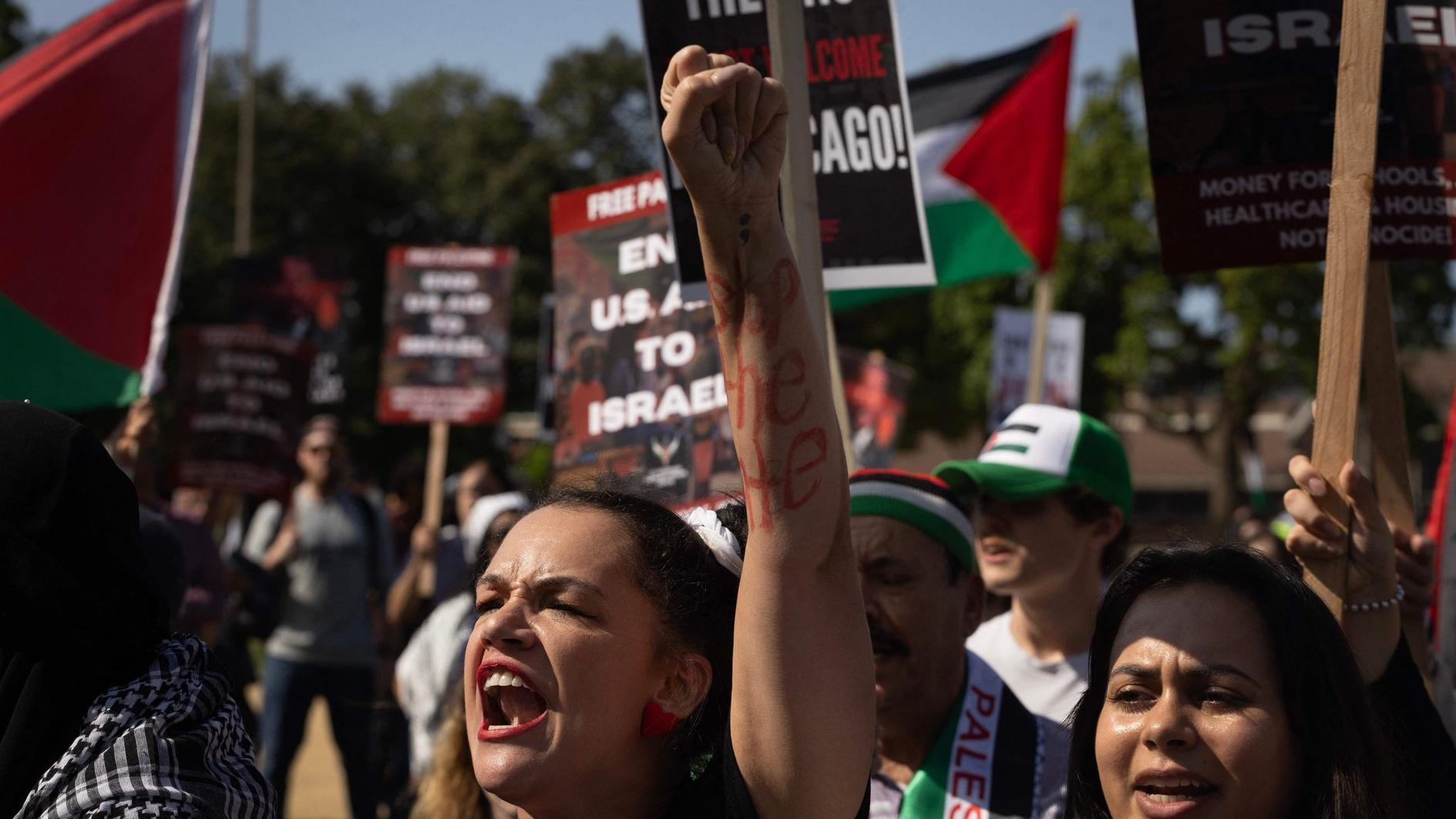
Demonstrators rally in protest over the war in Gaza near the United Center where the Democratic National Convention (DNC) is taking place on Aug. 21, 2024 in Chicago, Illinois.
The Palestinian factions Hamas and Islamic Jihad articulated their conditions for a potential agreement with Israel on Wednesday.
Their demands include halting the ongoing conflict in Gaza, a full Israeli withdrawal, initiating reconstruction efforts, ending the long-standing blockade, and establishing a substantial prisoner exchange deal.
Stipulations were detailed in a statement released after a meeting that involved Mohamed Ismail Darwish, the leader of Hamas’s Shura Council, alongside Islamic Jihad Secretary-General Ziad al-Nakhala and his deputy Mohamed Hindi. The location of their meeting was not disclosed.
The groups emphasized the urgent need for humanitarian aid delivery to Gaza, regardless of the negotiation outcomes concerning the end of hostilities. The discussions stressed the importance of ending what they described as Israeli aggression in Gaza, holding Israeli leaders accountable for alleged crimes against humanity, and assessing the resilience and capability of the resistance forces to continue their operations across occupied territories.
Regarding cease-fire negotiations, the meeting participants reviewed the progress of indirect discussions and highlighted Israel's obstructive actions as a significant barrier to mediator efforts in reaching cease-fire and prisoner exchange agreements.
Hamas and Islamic Jihad insist that any agreement must address their comprehensive demands: stopping all aggression, ensuring Israel's complete withdrawal from Gaza, initiating reconstruction, lifting the blockade, and reaching a serious prisoner exchange deal. They accused Israeli leadership of undermining mediation efforts by continuing the military aggression and not honoring previous proposals, specifically referencing a proposal accepted by Hamas on July 2.
The backdrop of the meeting includes Israeli Prime Minister Benjamin Netanyahu's firm stance on maintaining Israeli military presence in the Philadelphi Corridor on the border with Egypt and the Netzarim Corridor, which separates the northern and southern parts of Gaza.
On Wednesday evening, U.S. President Joe Biden engaged with Netanyahu to discuss the ongoing developments in negotiations. Despite international pressures and a U.N. Security Council resolution calling for a cease-fire, Netanyahu told family representatives of Israeli prisoners that Israel would not withdraw from the Philadelphi and Netzarim corridors under any circumstances, reported by the Hebrew newspaper Maariv on Tuesday.
The ongoing Israeli military offensive in Gaza persists following an attack by Hamas on Oct. 7, despite calls for an immediate cease-fire from the international community. The conflict has resulted in over 40,170 Palestinian deaths, with the majority being women and children, and has injured more than 92,740 individuals, as per local health reports.
The blockade of Gaza has created severe shortages of essential supplies, including food, clean water, and medicine, leaving significant devastation in the region. Furthermore, Israel faces accusations of genocide at the International Court of Justice, which has mandated a pause in military operations in Rafah, a city where over one million Palestinians sought refuge before its invasion in early May.